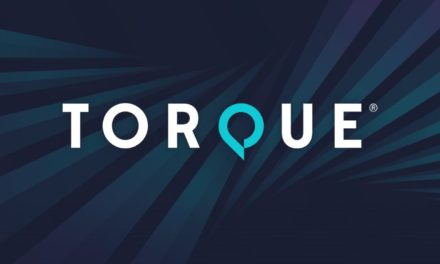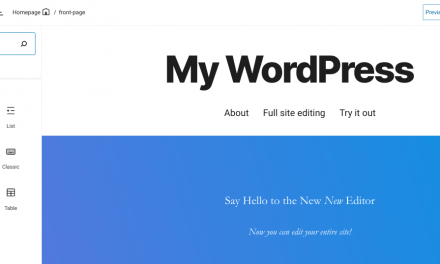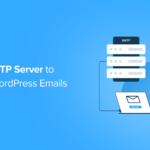Starting a career in WordPress is something that would have seemed impossible just a few years ago. After all, we are talking about a piece of free software. How can working with that possibly put food on the table or provide for a family?
However, with WordPress powering close to 40% of the Internet, this has long become a reality for thousands of people. In fact, by now, WordPress is not only running world-famous websites and blogs but is what million-dollar businesses are based on. As a consequence, these days, working in WordPress has become a legitimate career path.
If you are interested in WordPress as your full-time career, this post will show you how you can make this dream a reality. We will talk about how to choose from the many ways you can work with WordPress and give you step-by-step instruction on how to acquire the necessary skills and start getting paid.
Ready to embark on a new professional path? Then let’s go.
Choose a WordPress Career Path

The first thing we need to talk about is that there isn’t one career you can have in WordPress. That’s because there are so many different things you can do with the platform.
So, as a first step, let’s look at the opportunities that are out there for anyone wanting to break into the WordPress sector and what they entail.
Development/Design
One of the classic ways to start a WordPress career is building websites. After all, that’s what the platform is designed for. Here are the options you have in this area:
- Developer — This can mean a lot of different things. You usually need to have HTML, CSS, and PHP skills (JavaScript doesn’t hurt either). Focus on the back end or front end, build custom websites, create and sell your own themes and plugins, work freelance or as part of an agency, and more – it’s your choice.
- Web designer — Comes with a similar job description as a developer, however, you are dealing exclusively with the design of a website. Designers use design tools to create visuals and can sometimes also implement their work via HTML and CSS. If the distinction is not clear, check our list of differences between developers and designers.
- Implementer — Not really a designer or developer, it describes a person who knows how to build WordPress websites with existing themes and plugins but doesn’t have a lot of coding skills. Page builder plugins have given rise to this type of WordPress career.
Content/Marketing
If you are less technically inclined, you can also use WordPress as a marketing tool. There are plenty of career opportunities in this direction as well, such as:
- Content writer — Thanks to the CMS’ success, there is a lot of demand for people with WordPress skills who also know how to write about the platform. To be successful, of course, it helps if you are able to properly string words together. Plus, you are most likely going to work in WordPress as well, so knowing Gutenberg and the rest of the platform is mandatory.
- Content manager/Editor — Instead of writing content, you can also be the one to take care of it in the background. This means coordinating with writers, proofreading and scheduling content as well as other administrative tasks.
- Blogger — Who says you have to create content for others? You can also do the same for yourself on your own blog. This comes with a lot of different hats to wear but if you know ways to monetize it, it can also be a legit WordPress career.
- Content marketer — Content marketing involves things like creating a content strategy and planning content promotion in addition to making sure the right content is created.
- SEO specialist — Search engine optimization is about making sure a website and its content is understandable for search engines and ranks well. This involves skills in technical SEO, keyword research and knowing your way around Google Analytics and Search Console. It doesn’t have to be WordPress specific but the platform offers many SEO plugins and tools, making it a good candidate.
Other WordPress Career Opportunities
Finally, here are a few mixed job ideas that involve WordPress:
- Entrepreneur or Freelancer— If you want to start an online business, WordPress is a great place to start. Whether you want to start a consulting business, an online shop, sell online courses, create a portfolio, or else, WordPress can help you.
- Support — This comes in different flavors. There are plenty of WordPress companies who need people with technical skills and who know the platform to help their customers out with problems. However, there is also a growing number of WordPress support companies. They take care of anything from setting up sites over reclaiming hacked websites to speed optimization and general site maintenance. Maybe you could be one of them?
- Hosting — More and more people are using WordPress and all of them have to host their sites somewhere. If you have the technical skills to set up and run a web servers, you might be able to charge people to house their websites on them.
- Teaching — As we will see below, there are plenty of learning resources for WordPress. So, if know how to use the platform, you can teach others. The demand is there, the question is how to fill it.
Or Maybe Something in the Middle?
Which one of these sounds good for you? Note that you don’t necessarily have to settle for one role. You can also be a blogger-entrepreneur, web designer/developer (aka full-stack developer), or some other combination. Plus, lots of people start off as one thing but transition to another when they develop additional skills.
However, most of the time you begin with a focus on one area and then branch out. Therefore, it’s good to think about which kind of role or area is probably most suited to your personality/interest/skill set and start with that. After that, it’s time to acquire some skills.
Educate Yourself

Once you have an idea about the direction you would like to take, it’s time to acquiring the necessary skills. Just like any other job, in order to have a career in WordPress, you need training.
The good thing about WordPress, however, is that you can get a job even without any formal training. After all, there is no WordPress university you can go to. You can actually train yourself to work in WordPress entirely by yourself
That is not to say that formal training isn’t available or unnecessary. For example, if you want to work as a developer or designer, there are plenty of university courses and apprenticeships available for it. However, here, we want to go over the steps someone can take who is starting from scratch and coming to WordPress from zero.
Get to Know the WordPress Platform
Of course, if you want any career in WordPress, you need to know the platform inside and out. No matter what you end up doing, you will need to know the back end, where to do what, how things fit together, how to use themes and plugins, etc.
It’s also very helpful to be familiar with the underlying architecture like the template hierarchy, the meaning of important files like style.css and functions.php, how to create a child theme, etc.
The cool thing is that, because WordPress is open source, you can get this education at absolutely no cost.
You can download WordPress and create a local server server environment with a program like Local or XAMPP, install the CMS there, and play around with it completely free of risk.

Use the helper menus to find out what different parts of the UI are for.

There is also the WordPress Codex, Make WordPress and the WordPress Developer Resources. In addition, you can find plenty of free tutorials on the web telling you how to accomplish different things (like on this site).
Pro tip: If you have never ever worked with WordPress before, for the beginning it makes sense to go over a more formal course where you look at every nook and cranny of the WordPress back end. This will give you good overview and foundation to stand on. I can recommend Morten Rand Hendriksen’s course on Lynda.com for that.
Specialize
Besides knowing WordPress inside and out, of course, you also need to acquire the skills you are planning to apply to the platform. Depending on what career path you have in mind for yourself, this will look very different.
As developer, you will want to learn PHP, as a blogger your aim is to become a better wordsmith and learn about SEO, an entrepreneur needs business skills, and so forth. Your direction will also tell you about the tools and equipment you need to get started.
Thankfully, in today’s Internet you can find plenty of free and paid resources to learn just about anything. Here are a few good places to start:
- freeCodeCamp — Literally what it says in the name: Free coding lessons for anything from HTML and CSS over Bootstrap, React to APIs and quality assurance. FCC issues certificates for completed courses and graduates have gotten jobs at big tech companies.
- YouTube — YouTube is full of free resources and tutorials on pretty much anything. Search for your topic and you are sure to find something, no matter if it’s related to WordPress or else.
- Udemy — Online courses on all things business, design, development, marketing, IT, and more, over 100k of them. Udemy is a premium offer and prices for courses vary but it’s free to sign up.
- Skillshare — Similar to Udemy. It’s free to sign up and offers free classes to dip your feet. For others you need to sign up to the premium version.
- Lynda — The OG of online classes. Offers hundreds of classes including the WordPress course I referenced above. Comes with a free trial month, which is usually enough to finish one course.
- Tutsplus — Run by Envato, the site offers free tutorials and paid courses on all things code, web design, business, design, and more. You need to subscribe for premium features, which starts at $16.50/month.
- SmartBlogger — An awesome blog on everything related to blogging and content marketing that offers tons of value for free. For a more systematic approach, they also have online courses.
There are plenty more, just a quick Google search away. Look for resource collections on different topics like this one on JavaScript. Not to mention, there are plenty of books you can find on pretty much any topic.
In addition, you also have the aforementioned formal education offers like university courses, adult education centers, etc.
Build a Portfolio
One of the most important things when looking for work is a) having a professional web presence and b) stuff you can point to as proof for your skills.

The cool thing is: you can also acquire both at the same time. Because the most effective way to teach yourself something is to use it in a project, in this case your own web presence.
Use your newly acquired skills to create a website with WordPress for yourself. This will give you more practice and also act as a virtual business card for anyone you will apply for work to.
In addition, try to find ways to use your new skills to build things. This can be a challenge you set yourself like building a certain feature. Or, it can be free (or even paid) work you do for other people. (I believe that, if you are in the process of building a portfolio, it’s fair to do some work for free to show off later.)
The point is, it’s much easier to find someone to pay you for your work if you have something good that you can point to and say “I made this”. It’s much better than them just having to take your word for it.
For example, I started working with TorqueMag by sending them writing examples from my own blog. This acted as proof that I knew what I was talking about and landed me my first paid writing job ever. Six years later and here we are.
Apply for Jobs

Once you have honed your skills to the point that you are confident in them, it’s time to look for someone to pay you for using them. Whether that will be in the form of freelancing or steady employment is up to you. They require very different approaches to find work but it’s also possible to transition from one to the other.
Here’s where you might look for ways to put your skills to the test and earn money:
- Your personal network — At the beginning of your career, it’s always good to let your friends and family know that you are available for certain services and see if they or someone they know needs them. It’s a good way to get your foot in the door.
- Networking — Networking is an art in itself and connecting to people an important soft skill. We have a whole article on that topic.
- WordPress Jobs — The official job board of WordPress.org. Contains everything from part to full-time to project-based employment.
- Automattic — One of the biggest companies based on WordPress. They always have plenty of (remote) job offers you can find on this page.
- WPhired — A job board for WordPress jobs of all categories including writing and SEO.
- Codeable — This is a great place to hire vetted WordPress developers. If you think you have the necessary skills to be part of their pool, you can apply here.
For additional WordPress career opportunities, read this post.
Note that you don’t have to be the best or know everything to get started. It’s absolutely fair to learn some stuff in the process of a project. If you hang out on any forum or subreddit for programmers and developers, one of the most common jokes is that 80 percent of their work consists of googling for stuff.
So, don’t be afraid to stretch yourself a bit and apply for things that seem just a little outside of your range of knowledge. Trust me, it’ll be good for your growth.
How Will You Start Your WordPress Career?
The WordPress sphere has grown incredibly during the relatively short time of its existence. The platform is now responsible for the livelihood of thousands of companies, employees, freelancers, and entrepreneurs.
The good news is that the boat is far from full. With WordPress continuing to grow, so does the job market. What will you do?
What career opportunity relating to WordPress is most interesting to you? Which step can you take today to get a little closer to it? Let us know in the comments section below!











